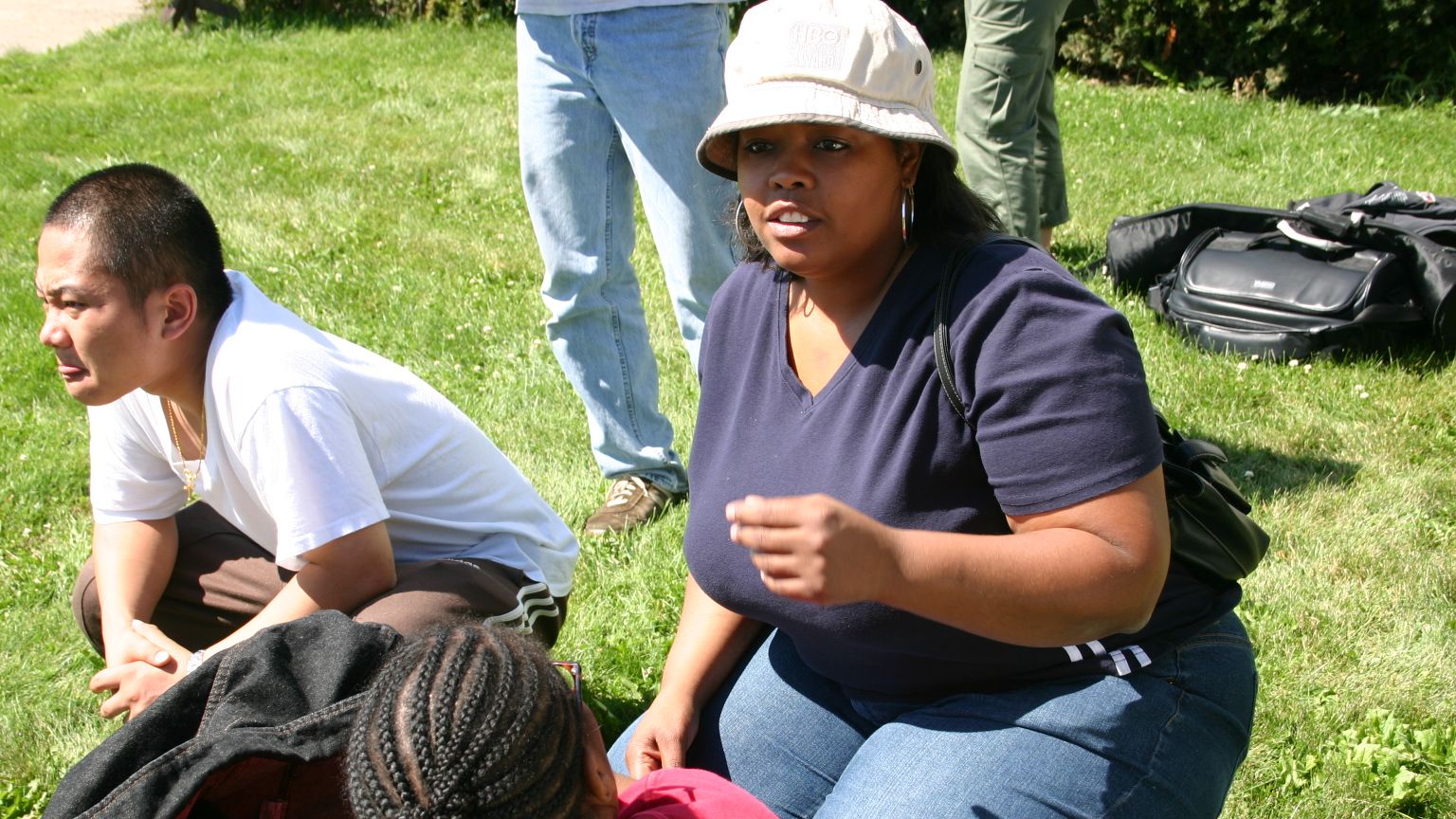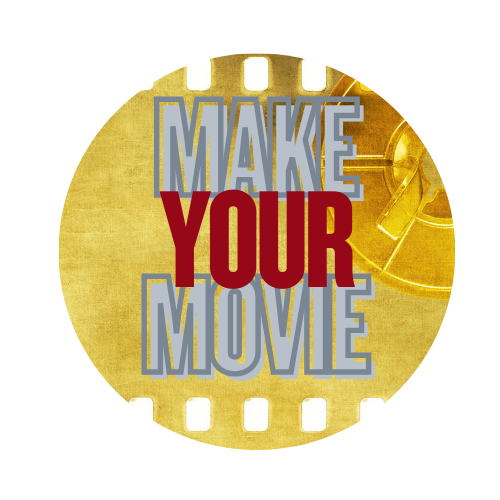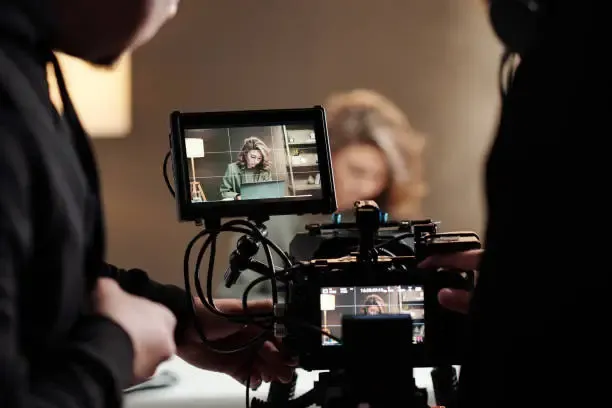🎬 What I Wish I Knew Before Directing My First Feature Film
Oct 21, 2025
Hey Filmmakers,
When I directed Maya & Her Lover, I wasn’t new to the industry. I had over two decades of experience working on everything from gritty indie projects to big-name studio productions with HBO, Lionsgate, and Amazon. As I mentioned in my previous post, The Myth of the First Film, Maya & Her Lover wasn’t technically my first feature. That honor goes to Layla’s Girl — a drama about an estranged daughter returning home for her mother’s funeral.
By then, I had already directed two short films with some success, but I was hungry for a feature. Both shorts had been made possible through a small grant from a local organization called Public Benefit Corporation. The grant was only $15K, but as I like to say:
🎬 A film can be made for any amount of money — it just depends on what you’re willing to compromise on.
What I didn’t have was a script. Enter writer Rashid Cannad. I don’t remember exactly how we met, but he agreed to write a script for me loosely based on my relationship with my mother. When the script arrived, I was beyond excited and dove straight into pre-production. It wasn’t until the table read that I realized — oof — the script needed work (more on that in another blog). But nothing was stopping this first-feature train from rolling forward.
🎥 Knowing how to make a full-length movie is not the same as making a short film.
So here are a few hard-earned lessons — the things I wish I knew before stepping onto that set.
Fighting Imposter Syndrome
As mentioned, I’d directed local TV and a couple of shorts, but stepping into the director’s chair for a feature was a whole other vibe. Short films don’t always get the same respect — they don’t hold the same weight and gravitas of a feature film. Once you start your first feature, the stakes feel higher. You tell yourself, this has to be the one. You feel like this film could launch your career, and suddenly every decision feels like life or death.
That’s when imposter syndrome shows up uninvited.
During prep, you’re confident and decisive — but once the camera rolls, doubt creeps in. You start second-guessing every choice. Who am I to make this movie? I don’t even know all the answers.
Here’s the truth: that feeling never fully goes away. Every filmmaker I know still feels it. You’re exactly where you’re supposed to be, doing exactly what you’re meant to do. You’re only as good as you are in that moment — and that’s enough. Learn, grow, and remind yourself daily: I deserve to be here just like the next person. Do you.
Trust Your Instincts
“Nobody knows anything.” That’s not me — that’s a quote by the great screenwriter William Goldman. He was talking about the fact that no one, not even the pros, can predict which films will succeed. That still holds true. No algorithm, app, or AI can predict a success.
Film is a collaborative medium. You’ll rely on your team — especially if you’re lucky enough to hire seasoned pros — but don’t let that intimidate you. Yes, lean on their expertise, but remember: this is your film. Your baby.
If you feel strongly about a choice, follow that instinct. Another person might have a different take, opinion, or way of doing things — that’s fine. Even if your decision doesn’t work out, you’ll learn from it. That’s the job. That’s how you grow as a director.
Your Team Will Mirror Your Energy
This goes without saying, you’re the captain of the ship. The energy you bring will set the tone for the entire crew — and that tone affects everything - including the quality of work.
A happy crew works harder for you and happily (see what I did there). Resist the urge to allow your bad morning, day, or mood to affect how you treat or respond to your crew. If you come in scattered, angry, or insecure, trust me — they’ll feel it. As the director, you’re not just shaping the story; you’re shaping the atmosphere on set.
Sometimes that means taking five minutes to let someone vent. Sometimes it means playing mediator or learning how each actor works best. The gig isn’t just directing — it’s managing energy, egos, and emotions while still keeping the vision clear. The gig is learning how to balance it all - and that is the real craft.
You Don’t Need to Know Everything
I didn’t go to film school. So when I started directing, I overcompensated — reading every book, taking umpteen workshops (yes, that's a number) and classes, thinking I needed to know it all before stepping on set.
Spoiler: you don’t.
Yes, you’re the director, and people will look to you for answers. But here’s what nobody tells you — you don’t have to have every answer. You just need an answer. Sometimes that answer is, “I don’t know, let’s figure it out.”
That’s what a great crew is for. Your DP knows lenses and lighting. Your costume designer knows how wardrobe reveals character. Your gaffer knows how to paint emotion with light. You don’t have to do their jobs — you just have to communicate what you want to feel and see. That’s it. Prep well, so you know everything you want to see - stay confident, and trust your team to fill in the gaps.
The Aftermath of the End
Working on a feature (or a TV show) is a marathon. Months — sometimes years — of 12-14 hour long days and late nights. Because of this intensity, you’re more than traditional coworkers. You become a family. You share meals, inside jokes, breakdowns, and breakthroughs.
And then, just like that — it’s over.
It’s a strange kind of grief. One day you’re in the trenches with your crew, and the next, you’re alone with your thoughts and hard drives. For me, it felt like graduating from college and realizing you’ll never see your classmates again. That post-production quiet can hit hard.It bordered on depression. The adrenaline drops, and suddenly, you’re exhausted. I lay around for at least a week or two before I could reemerge.
Take the time to rest. Reconnect with your friends and family. Reconnect with yourself. You’ve earned it. Let your mind clear before diving into the next phase — post, festivals, distribution — whatever’s next.
Final Thoughts
Directing my first feature stretched me, challenged me, and completely changed how I saw myself as a filmmaker.
If you’re standing on that same edge, ready to take the leap — here’s my advice:
You’re ready, even if you don’t feel ready.
Trust your vision. Build your team. Start your film.
And if you need a little push, a plan, or proof it can be done — that’s why I created my Masterclass.
It’s for filmmakers like you… and for the version of me who needed it most.
Yours in Filmmaking,
Nicole
P.S. I talk about all this and more in my Movie Making Masterclass. If you’re ready to produce your own film — with a little less guessing and a lot more guidance — check it out.
🎬 The Filmmaker Starter Pack
A FREE cinematic toolkit to kickstart your first feature-including Nicole Sylvester's funding guide, microbudget video replay, templates, and live consultation access.
When you sign up for a resource, I'll also send you email updates on my latest blog posts, VIP content and the occasional product recommendation. Of course, I will always respect your privacy and data.

